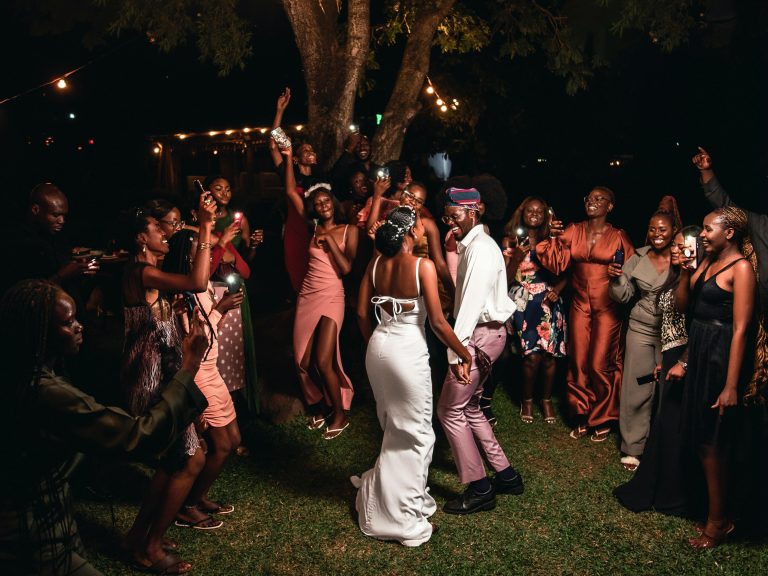“The groom will be our community husband”, “our wife”, “we will be at the honeymoon too no matter what” and “we are now part and parcel of this marriage too” are some of the negative stereotype phrases a bride and groom tend to endure whenever they announce they want to hold a fundraising to hold their wedding or are requesting financial loans to offset their pending bills.
The comments are always underhanded, backhanded, brutal and whispered among acquaintances.
Yes, weddings are a celebration of love but the nature of the expenses involved in pulling off a successful event always turn many a dream weddings into nightmares- with brides and grooms walking down the aisle in veiled shame and judgement over how they could have a wedding when they couldn’t afford it in the first place.
But if you’re the type of marrying couple on whom water rolls off the back in the face of stigma and snide remarks, there is a way you can handle the shame and judgment that comes with fundraising for your wedding or post-wedding needs.
According to Nairobi based Counselling Psychologist Ms Audrey Oluyole, as weddings in African cultures tend to be grand-community driven celebrations, a marrying couple should never consider wedding fundraising a weakness but a reflection of communal spirits deeply embedded in African traditions. People often chose to contribute either meals or furniture to make the day special for the couple.
“So, as society evolved, money began to exchange hands because service providers needed to be paid. That’s how the financial aspects came in. What then should couples do to handle the shame and judgement that comes with wanting a wedding but being financially incapable? They should simply own their decision. It simply means that they accept seeking support was a choice and that there’s no shame in it. Struggling financially at times isn’t easy.
And most times you’ll find that even after sitting down and coming up with a budget and pulling strings here and there and chasing after the money, they’re still short. So, asking for that financial support isn’t a sign of weakness and they shouldn’t be ashamed about it,” began Ms Oluyole.
She also advised such couples to break the ‘fundraising shame’ by appreciating and acknowledging the generosity as it would take away to the guilt feelings. In doing so, a couple would be recognizing the huge roles contributors played in their wedding. Also, she advised that wedded couple should work on tuning out negativity by knowing that not everyone who helped them did it out of the goodness of their hearts as some come with strings and comments attached such as “our wife”.
The ultimate way to deal with this stigma? Budget and save for the wedding months or years in advance without putting yourself in the position to be an unexpected financial obligation to others- whether rich family and friends or not.
“It can actually scale down the number of people who will come in to contribute and feel like they have a right to you after the wedding,” added Ms Oluyole.
At the end of the day- after receiving communal funds to hold and celebrate their wedding- and in the face of whispered criticism, couples should find ways to protect their mental and emotional well being.
“Criticism, gossip and societal expectations can take a toll on newlyweds, especially if things didn’t align with what they expected from contributors. To stay emotionally strong, couples need to lean on each other and support each other emotionally, and remind themselves why they made certain financial choices. This is not the time of saying ‘this person or your friend or your family’, they should remember they are one and lean on each other for support.
They should also surround themselves with positivity by engaging with friends and family who respect their boundaries and offer encouragement. They can also seek professional guidance if financial stress or societal pressures become overwhelming. They can also consider speaking to a financial advisor because post-wedding finances are still there,” continued Ms Oluyole.
She concluded, “They (the wedded couple) come in and say, this is what we are working with, these are maybe the loans, and they’ll be able to navigate and live their lives in a peaceful manner and not feel like they are crashing down. So, in conclusion, post-wedding stigma around fundraising is a reality for many African couples, but it doesn’t have to define their journey.”

